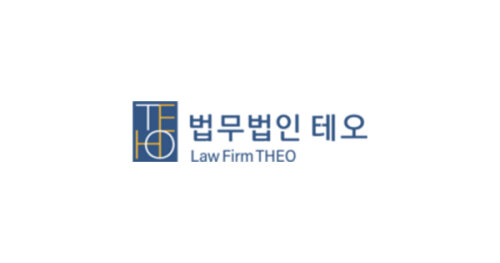Best Mortgage Lawyers in Yeonsu-gu
Share your needs with us, get contacted by law firms.
Free. Takes 2 min.
Free Guide to Hiring a Real Estate Lawyer
List of the best lawyers in Yeonsu-gu, South Korea
About Mortgage Law in Yeonsu-gu, South Korea
This guide explains basic legal information about mortgages on real estate located in Yeonsu-gu, Incheon. In South Korea, a mortgage is a security right against real property that a borrower grants to a lender to secure repayment of a loan. Mortgages are governed by national laws - primarily Civil law and statutes governing real estate registration - and implemented through local registration offices and the courts. Although the legal framework is national, practical steps such as registration, tax matters, and court procedures are handled locally through offices serving Yeonsu-gu residents.
Important features to know are that a mortgage must be registered at the local real estate registration office to be effective against third parties, and priorities among multiple creditors are generally determined by the order of registration. If a borrower defaults, a creditor holding a registered mortgage may seek enforced sale through the court system to recover the secured debt.
Why You May Need a Lawyer
Mortgages create both significant rights and obligations, and legal assistance is often needed in the following common situations:
- Purchasing property with financing - to review loan terms, security documents, and registration steps to protect your rights.
- Disputes over title or ownership - when ownership is unclear, contested, or involves inherited property that has not been properly registered.
- Errors or fraud in registration - when a mortgage or other encumbrance appears on the property register without your consent or based on forged documents.
- Foreclosure or enforcement actions - to defend against creditor enforcement, to negotiate workout plans, or to represent you in auction procedures before the court.
- Priority conflicts among creditors - to resolve who has priority when multiple mortgages or liens exist and to challenge improper priorities.
- Renegotiating loan terms - to review modification agreements, confirm legal effect, and ensure consumer protections are respected.
- Protecting tenant or Jeonse rights - when rental deposit claims, leasehold interests, or tenant protections conflict with mortgage enforcement.
- Cross-border issues - for foreigners or investors who need help with translation, compliance, or repatriation of funds.
Local Laws Overview
Key legal aspects that matter for mortgage matters in Yeonsu-gu include:
- Registration requirement - A mortgage must be registered at the real estate registration office for the district where the property is located. Registration gives protection against third parties and determines priority among creditors.
- Priority by date of registration - When multiple claims exist, priority is normally decided by the order of registration. This makes timely and accurate registration essential for both lenders and borrowers.
- Enforcement through the courts - If a borrower defaults, a lender may pursue enforced sale of the mortgaged property through court execution and public auction. Court procedures, auction schedules, and creditor rights are administered by the district court with jurisdiction over Incheon.
- Consumer protections - Loan contracts for home financing may involve statutory consumer protections, disclosure requirements, interest rate rules, and rules on unfair contract terms. Lenders are required to provide certain mandatory information at loan origination.
- Tax and local government considerations - Property taxes, acquisition tax, and other local charges are administered by municipal authorities. Outstanding taxes can also create liens or affect enforcement outcomes.
- Special housing arrangements - Practices such as Jeonse (large deposit lease) can affect creditor and tenant rights in enforcement scenarios. Tenants and depositors may have claims that interact with mortgage priorities, so understanding how lease rights are recorded and enforced is important.
Frequently Asked Questions
What exactly is a mortgage in South Korea?
A mortgage is a security right in real estate granted to a creditor to secure repayment of a loan. The legal effect is created by the mortgage agreement and, crucially, by registration at the local real estate registry. A registered mortgage allows the creditor to seek sale of the property through court enforcement if the borrower defaults.
How do I check whether a property in Yeonsu-gu has an existing mortgage?
You can obtain an official copy of the property register from the local real estate registration office or through electronic government services. The register lists the owner, registered mortgages, liens, and other encumbrances. Reviewing this document before purchase or lending is essential to identify existing claims.
How is mortgage priority determined?
Priority among competing claims is generally based on the order of registration at the registry office. Earlier-registered mortgages have priority over later-registered ones. Some statutory exceptions apply, so an attorney can advise on special cases such as hidden fraud or statutory liens.
What happens if the borrower defaults on a mortgage in Yeonsu-gu?
If the borrower defaults, the mortgagee may apply to the competent district court for forced execution. The court may order public auction of the property and distribute sale proceeds according to the priority of registered claims. Borrowers facing default should seek legal advice promptly to explore negotiation, restructuring, or legal defenses.
Can a mortgage be canceled or removed from the register?
A mortgage can be discharged when the secured debt is paid and the creditor issues a discharge statement. The parties must then apply to the registry to remove the mortgage entry. If a registration was made fraudulently, a court action may be needed to cancel the entry. Legal help is recommended to ensure proper discharge and removal.
What rights do tenants or Jeonse depositors have if a property goes into foreclosure?
Tenants and Jeonse depositors may have preferential claims in certain cases, depending on whether their rights are registered or fall under statutory protections. Registered leasehold rights typically have stronger protection. Unregistered deposit claims can be complex when a mortgage holder enforces the mortgage. A lawyer can assess the status of tenant rights and advise on steps to protect deposits.
Are there special rules for foreign residents or foreign buyers of property?
Foreigners can buy property in South Korea, but there are procedural requirements such as reporting to relevant authorities and, in some cases, obtaining permission depending on the property type and location. Foreign buyers should ensure documents are translated and that they understand registration, tax obligations, and enforcement risks. Legal counsel can help navigate language and regulatory differences.
What documents should I bring to a lawyer when seeking mortgage advice?
Bring the property register (official copy), loan agreement and mortgage contract, identification documents, any communications with lenders, tax payment receipts, and any notices of enforcement or auction. If you are a tenant or depositor, bring lease contracts and deposit receipts. These documents let a lawyer assess legal status and options.
How long does a mortgage foreclosure process usually take?
Timing varies widely depending on the complexity of the case and court schedules. A straightforward enforcement and auction can take several months from application to sale. If there are disputes, litigation, or objections, the process can extend considerably. Early legal intervention can help manage timelines and explore alternatives.
Can I renegotiate a mortgage or stop a foreclosure once it has started?
Yes. Many borrowers successfully renegotiate loan terms, obtain forbearance, or reach settlement agreements with lenders. Once enforcement proceedings begin, stopping foreclosure often requires prompt action - negotiating with the lender, applying for provisional remedies, or presenting defenses in court. A lawyer can negotiate on your behalf and advise on formal procedures to halt or delay enforcement.
Additional Resources
Here are local and national organizations that can help with mortgage and real estate issues in Yeonsu-gu:
- Yeonsu-gu Office - for local administrative support and information on local property matters.
- Incheon municipal tax authorities - for questions about property taxes and local charges.
- Real estate registration office serving Incheon - for official property registers and registration procedures.
- District court with jurisdiction over Incheon - for enforcement, auction, and litigation matters.
- Ministry of Land, Infrastructure and Transport - publishes guidance on real estate law and registration rules.
- Korea Legal Aid Corporation - provides legal aid and consultations for qualifying residents.
- Korean Bar Association - for lawyer referrals and information on licensed attorneys in Incheon and Yeonsu-gu.
- Korea Consumer Agency - for consumer protection issues involving financial institutions and loan products.
Next Steps
If you need legal assistance with a mortgage issue in Yeonsu-gu, follow these practical steps:
- Gather documents - obtain the property register, loan and mortgage documents, identification, tax receipts, and any notices related to enforcement or auctions.
- Obtain a preliminary legal consultation - contact a local attorney experienced in real estate and mortgage law. Use the Korean Bar Association referral service or local legal aid if cost is a concern.
- Ask for a clear scope and fee estimate - before engaging a lawyer, request a written summary of services, expected timeline, and fee arrangement so you can make an informed decision.
- Consider immediate protective measures - if you face impending enforcement, ask the lawyer about urgent steps such as negotiation, filing for provisional relief, or seeking a delay of auction.
- Keep records of all communications - with your lender, tenants, or other parties. Document offers, agreements, and payments to support any future dispute resolution.
- Understand alternatives - explore loan modification, refinancing, sale of the property, or mediation before resorting to litigation or allowing foreclosure to proceed.
If you are unfamiliar with Korean procedures or the Korean language, consider using an attorney who provides services in your language or a qualified translator to ensure you fully understand your rights and obligations.
Lawzana helps you find the best lawyers and law firms in Yeonsu-gu through a curated and pre-screened list of qualified legal professionals. Our platform offers rankings and detailed profiles of attorneys and law firms, allowing you to compare based on practice areas, including Mortgage, experience, and client feedback.
Each profile includes a description of the firm's areas of practice, client reviews, team members and partners, year of establishment, spoken languages, office locations, contact information, social media presence, and any published articles or resources. Most firms on our platform speak English and are experienced in both local and international legal matters.
Get a quote from top-rated law firms in Yeonsu-gu, South Korea — quickly, securely, and without unnecessary hassle.
Disclaimer:
The information provided on this page is for general informational purposes only and does not constitute legal advice. While we strive to ensure the accuracy and relevance of the content, legal information may change over time, and interpretations of the law can vary. You should always consult with a qualified legal professional for advice specific to your situation.
We disclaim all liability for actions taken or not taken based on the content of this page. If you believe any information is incorrect or outdated, please contact us, and we will review and update it where appropriate.









